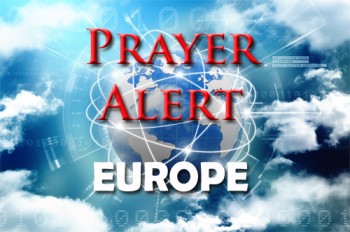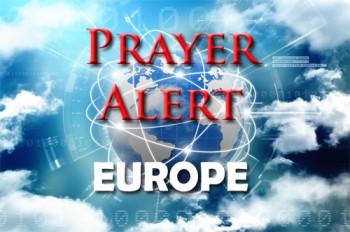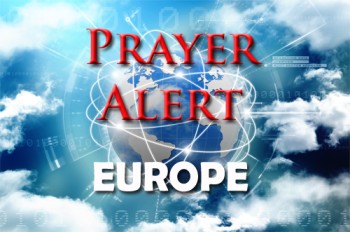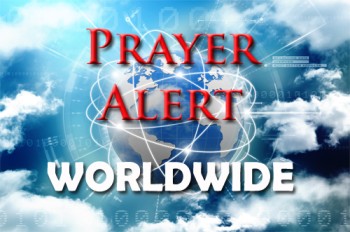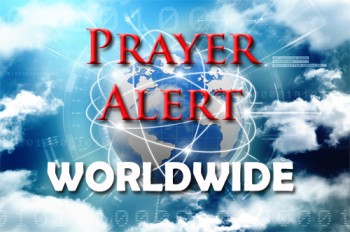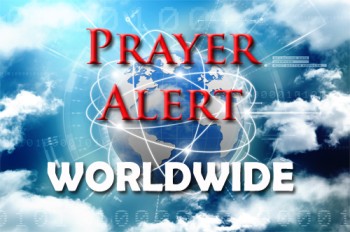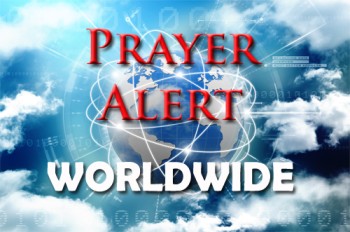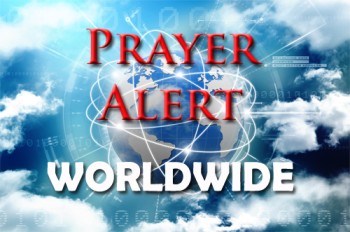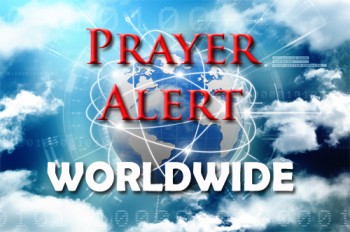Displaying items by tag: Azerbaijan
Azerbaijan: Putin urged to accept responsibility for air crash
President Ilham Aliyev has urged Russia to accept responsibility for the Christmas Day crash of an Azerbaijan Airlines plane, which killed 38 of the 67 onboard. The flight, from Baku to Grozny, was diverted from Chechnya and crashed in Kazakhstan. Vladimir Putin has apologised but stopped short of admitting fault, attributing the tragedy to Russian defences countering Ukrainian drone attacks. Aliyev criticised initial Russian explanations, including claims of a gas cylinder explosion and bird strikes, as ‘foolish and dishonest’. He acknowledged the incident was accidental but demanded that Russia admit guilt, punish those responsible, and provide compensation: he commented, ‘No one would have thought that in a friendly country, our plane would be fired at from the ground’. The crew members were honoured for landing the plane in a way that allowed 29 people to survive, even though it led to their own deaths.
Nagorno-Karabakh: ICJ will hear cases from both sides
The International Court of Justice (ICJ) has confirmed that it has jurisdiction to hear cases filed by Armenia and Azerbaijan, two long-standing adversaries. The cases stem from the 2020 Nagorno-Karabakh conflict, with both nations accusing each other of violating the international convention on racial discrimination. Armenia accuses Azerbaijan of engaging in ‘ethnic cleansing’, while Azerbaijan claims Armenia has spread hate speech and racist propaganda. The ICJ had previously issued emergency orders to prevent the incitement of racial hatred and protect ethnic Armenians fleeing Nagorno-Karabakh after Azerbaijan’s military actions in 2023. While the court’s rulings are binding, it lacks enforcement power. The cases are still in the early stages, with the court narrowing the scope of certain claims and excluding others. The process could take years to resolve, as both nations await the next hearings and a final ruling on the merits of their claims.
Armenia / Azerbaijan: prisoner exchange a step forward
On 12 December, Armenia and Azerbaijan took a significant step forward by exchanging prisoners. This move follows years of conflict over the Nagorno-Karabakh region, which Azerbaijan annexed in September, resulting in most of its population fleeing to Armenia. The exchange, facilitated by the International Red Cross, involved the release of 10 Azerbaijani prisoners and the return of 15 Armenian captives. This act of goodwill was welcomed by the EU and the USA, who have been trying for years to persuade the two countries to sign a peace treaty. The exchange follows another positive move, an announcement on 7 December by Azerbaijan that it would not object to Armenia hosting COP29 in 2024: see
Azerbaijan arrest as exodus tops 50,000
Azerbaijan has arrested former Nagorno-Karabakh leader Ruben Vardanyan as he attempted to flee into Armenia amidst a mass exodus of ethnic Armenians. Azerbaijan recently regained control of Karabakh in a rapid offensive, causing widespread displacement and a humanitarian crisis. The region, internationally recognised as part of Azerbaijan, has a predominantly ethnic Armenian population. Azerbaijan claims it wants peaceful reintegration and guarantees of civic rights, but faces accusations of ethnic cleansing as thousands of Armenians have fled in fear. The EU and Germany have expressed concern and called for international observers, and the UN has called for an investigation into alleged violations of the right to life. Vardanyan's arrest comes as Azerbaijan seeks to prosecute separatist leaders. The situation highlights Russia's diminished role as a security guarantor in the Caucasus region, with competing influences from Turkey, Iran, and the United States. As a result of the crisis, the current leader has said that the enclave will officially cease to exist with effect from 1 January 2024: see
Armenia: Nagorno-Karabakh blockade continues
Asmaryan eats potatoes for every meal. He lives with 120,000 other ethnic Armenians in Nagorno-Karabakh, an enclave in Azerbaijan in the South Caucasus. They are cut off from Armenia by the Azerbaijani blockade of the Lachin Corridor, the only road in or out of Nagorno-Karabakh. They are under siege, with little food, essential medicines, hygiene products, baby formula, or fuel. Residents believe Azerbaijan wants to starve them into submission so that if or when the road reopens, they leave. It is a slow-motion genocide, with hunger the weapon. Asmaryan said outsiders don’t care about Karabakh as they have no natural resources: ‘They talk about human rights but do nothing.’ However, the Archbishop of London’s Coptic Orthodox Church, the Primate of the Armenian Church of the UK, the Bishop of Southwark, and other church leaders have written an open letter to Rishi Sunak urging immediate action to open the Lachin Corridor and prevent genocide. Also, Armenians will demonstrate in Yerevan on 2 September to express unity with Nagorno-Karabakh.
Nagorno-Karabakh - prayer still needed
In January we prayed for the 120,000 Christians stranded in Nagorno-Karabakh, a landlocked enclave between Armenia and Azerbaijan, asking God to halt the obstructions to one of Christianity's oldest communities. The situation continues and requires immediate action. Currently, inhabitants of Nagorno-Karabakh cannot travel freely out of the region; 954 are still stranded on either side of the corridor. Only the Red Cross and Russian peacekeepers’ vehicles are allowed to travel along this corridor, which is clearly insufficient to fulfil the needs of the population. It is vitally important that goods can get through in time for the sowing season. Furthermore, the repeated disruption of gas and electricity supply to the territory has resulted in serious violations of the rights of the inhabitants: many have lost their jobs and children are deprived of education since schools had to close. Azerbaijani military positions are within Armenian sovereign territory, sometimes well beyond any disputed border.
Armenia: Christians face dire circumstances
‘There is no time to wait, this is genocide’, said Dr Sukhudyan, describing the situation in Nagorno-Karabakh, a landlocked enclave between Armenia and Azerbaijan. Deadly battles between Armenians and Azerbaijanis have previously raged there. Armenia is the world's first official Christian country, and 120,000 Christians live in the enclave. The road to it was protected by Russian peacekeepers, but on 12 December Azerbaijani protesters blocked it, preventing food, medicine, and other basic transport in or out. Now this ongoing dispute - in light of the past genocidal horrors - has human rights groups deeply concerned about what is to come. The minister of state for Nagorno-Karabakh said this is probably the prelude to an Azerbaijani armed attack, and if Russia does not step in, Armenia is not strong enough to stop them conquering the region. There will be massacres, with the oldest churches in the world possibly destroyed.
Armenia: the forgotten war victims
A group of Armenian organisations has appealed to the UN, warning about ethnic cleansing of the population of Nagorno-Karabakh by Azerbaijani Muslims. Their letter stated, ‘Two years have passed since the war against Nagorno-Karabakh started, but security issues are not resolved yet. Many fundamental rights are continually violated, plus significant and increasing risk of new conflicts and atrocities. Ethnic cleansing of native Armenians of Nagorno-Karabakh is especially alarming. The Azerbaijani government's extreme hatred and belligerent rhetoric, destruction of Armenian monuments, appropriation of cultural heritage, exceptional brutality by Azerbaijani armed forces, continuous threats of violence, and intimidation are characteristic of genocidal atrocities. The scenario of ethnic cleansing may become a reality if Azerbaijan’s crimes remain unaddressed and effective pressure is not put on Baku to refrain from violence.’ Armenian Christian families in villages across the enclave need prayer, hope, and practical help. If their pasturelands are not seized by armed forces, they are too dangerous to use because the military are so close. See
Armenia / Azerbaijan: border flare-ups
Over a hundred Armenian soldiers are dead after border clashes with Azerbaijan ,which lost fifty of its troops in the worst fighting since 2020. Armenia appealed to world leaders for help after Azerbaijan began advancing on its territory. The conflict between the former Soviet republics is over the contested Nagorno-Karabakh region, which is Azerbaijani territory but populated with ethnic Armenians. Azerbaijan states that ethnic Armenians are illegally occupying its land. 30,000 people died in a 1991 conflict following the collapse of the Soviet Union, and ethnic Armenian separatists broke away from Azerbaijan. The six-week war in 2020 killed 6,500 people and ended with a Russian-brokered truce; Armenia cedied swaths of territory it had controlled for decades. Armenians are mostly Christian with military ties to Russia, while Azerbaijan is a Muslim country with ties to Turkey. On 14 September Armenia said a truce had been agreed but there was no confirmation from Azerbaijan. See
Global: ‘Pegasus Project’
Journalists and activists are under constant risk in too many parts of the world. Recently the extent and all-consuming nature of the threats was revealed when new technology was discovered. An Israeli company invented spyware that can do everything from extracting data to inconspicuously recording live audio and video. They insist their technology is intended for use against criminals and terrorists. But the Pegasus Project shows that it has been used by some governments to target journalists, activists, and political opponents. Journalist Khadija Ismayilova led the investigations which exposed Danske Bank moving suspicious cash to launder Azerbaijan’s international image. US$230 billion in dirty money was funnelled through the bank’s accounts in twelve years. Yet full accountability for the apparent anti-money laundering failures has been impossible to achieve – until this week. The European Commission has proposed an anti-money laundering agency, which could be a much-needed gamechanger.
